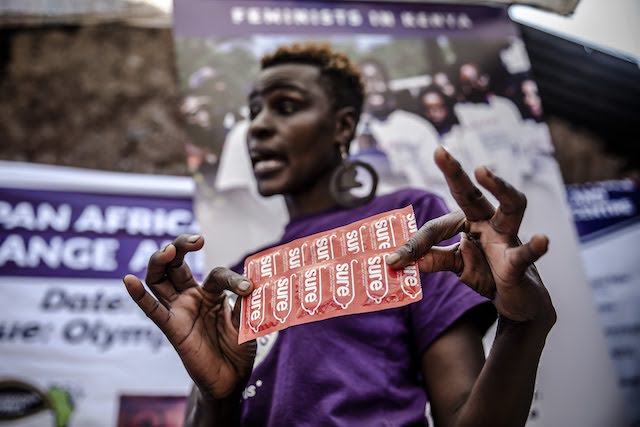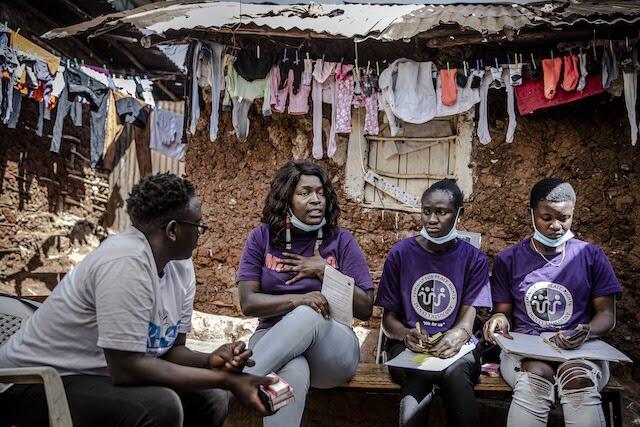At the heart of Kenya’s largest informal settlement, Kibera, more than 30 women congregate in a four roomed house that serves as the headquarters of the Feminists for Peace, Rights and Justice Center (FPRJC). The women are here to attend a legal aid camp organized by the center to help victims of gender based violence access justice. The center’s founder is Editar Achieng, who has rallied other women in the community in taking a stand against the high rates of sexual and gender based violence in the community. A survivor of GBV herself, Editar established the center to act as a safe space for women and girls in Kibera, who face a heightened vulnerability due to their social and economic circumstances.
The center reaches nearly 600 women in Kibera with various services, including monthly support group meetings for survivors of gender based violence, legal aid, training on income generating activities, and the distribution of contraceptives. FPRJC also operates a shelter for women and girls who have suffered gender-based violence, offering emergency accommodation within its premises for 48 hours. “In a night, we can shelter upto 14 women and girls, but due to the limited space, we are only able to offer first response before referring the survivors to larger shelters for long term help,” says Ochieng.
In 2020, UNFPA entered into a new partnership with FPRJC to provide technical and financial support in the provision of GBV response services, including the refurbishment of the rescue shelter as well as support for the center’s legal aid and economic empowerment activities. According to Ochieng, poverty and a lack of awareness on bodily autonomy has led to many women and girls relinquishing their basic rights to their male partners and guardians, including their sexual and reproductive health rights. “When a woman’s reproductive health is stuck, her life is also stuck. Access to contraceptives is one of the most crucial empowerment tools that women in Kibera need to improve their lives, but often this is not available,” notes Ochieng.

Akinyi is a beneficiary of the center’s services who regularly attends self-help forums organized by FPRJC. As a survivor of gender based violence, the centre has been a lifeline in providing her with the information and psychosocial support needed to rebuild her life. “When we disagree with our husbands on matters of sex and family planning, the response from the man is usually violence and force,” says Akinyi. Her friend Emily Rajab agrees, saying many women and gilrs have faced abuse in their relationships for choosing to use contraceptives. "We have had cases of women being beaten after confronting their partners who have infected them with a disease. If a woman gets pregnant and her partner does not want to deal with it, this can also result in physical abuse,” explains Rajab.
When a woman’s reproductive health is stuck, her life is also stuck. Access to contraceptives is one of the most crucial empowerment tools that women in Kibera need to improve their lives, but often this is not available
Community health volunteers from FPRJC regularly conduct door to door visits distributing contraceptives such as male and female condoms to vulnerable women living in Kibera. The volunteers also give health talks and encourage victims of sexual and gender based violence to seek medical attention if required.


